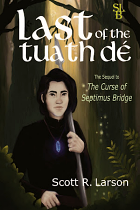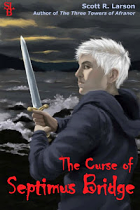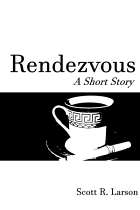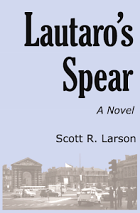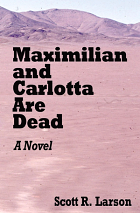The demythologizer (1925-2006)
Like a lot of people, I first became aware of the director Robert Altman with the release of the movie M*A*S*H. And I first became aware of M*A*S*H because of my high school friend Gail Kelley. She was mad about M*A*S*H, and by that I am referring to the novel by the pseudonymonous Richard Hooker. Her enthusiasm for the book was infectious, so those of us who were her friends got into as well. We were thus excited to learn that it was going to be adapted into a motion picture. There was some question as to whether Gail—whom I habitually called “Irish person” (something that seems strangely ironic in hindsight) because she was one of the few people I knew with Irish heritage in my small Central California hometown, which was dominated by people with German and Spanish surnames—would actually be able to get in to see M*A*S*H because, in that pre-MPAA-rating era, it was restricted to moviegoers 18 years and older, and Gail was only 17. But got in she did and, if memory serves, she loved it as much more than the novel.
I got in as well, and I had never seen a movie quite like M*A*S*H. For one thing, it was the first movie I had ever seen that dealt with the U.S. military and was not reverent about it. In fact, it mocked it relentlessly. The film was about the Korean War in the 1950s, but the parallels with the then-ongoing Vietnam War were inescapable. And then there was the matter of Sally Kellerman, playing a character nicknamed Hot Lips Houlihan, getting her comeuppance by having her showering body revealed for the entire camp to see. M*A*S*H made such an impression on me that I could never imagine anyone other than Donald Sutherland and Elliott Gould playing the outrageously irreverent surgeons Hawkeye and Trapper John. When the movie was ultimately adapted as a television program, I refused to watch it—a boycott that was easy to maintain since, during virtually all of its eleven-year run, I did not own a television set. But my university roommates managed to watch it, and they watched it religiously, to their weekly delight—just as my mother would years later when it was in syndication.
M*A*S*H was Robert Altman’s breakthrough movie. Before that, he had been a director of television shows like Alfred Hitchcock Presents, The Millionaire, The Roaring 20‘s, Bonanza and Combat! And in M*A*S*H, he did something that he would do in a lot of his movies. He demythologized. During the course of the movie, the camp’s announcer is heard on the loudspeaker, advising the troops of movies that are playing for their entertainment. These include such gung-ho World War II fare as The Glory Brigade. (“Rock ‘em, sock ‘em, kisses you never got,” intones the announcer, haltingly, as way of advising potential viewers of the content.) Altman’s movie was a clear and deliberate effort to destroy the mythology of those movies of an earlier, more patriotic time. And what he did in the process was to create his own mythology—a sort of re-mythologizing. In Altman’s world, the military was run by incompetent boobs and staffed with holier-than-thou hypocrites (like the ones played by Kellerman and Robert Duvall). Caught up in the incompetence and hypocrisy and carnage were Sutherland’s and Gould’s surgeons, who were seemingly the only sane people in an insane situation—maintaining their sanity (in between saving lives) by acting even more insane than the insanity around them. It was a perfect comedy for the time, when media coverage of Vietnam made the world seem insane to students of the era, and for our generation, which was ready for jabbing at authority at all levels, after growing up in a relatively conservative era. And for self-absorbed self-styled nihilistic types, a song called “Suicide Is Painless” was only the icing on the cake.
When Altman wasn’t demythologizing the military specifically and war generally, he was doing the same thing to the American western, in both McCabe & Mrs. Miller (with Warren Beatty and Julie Christie) and Buffalo Bill and the Indians, or Sitting Bull’s History Lesson (with Paul Newman). If Sergio Leone took the cowboy figure, personified by the likes of John Wayne, and made him an anti-hero, Altman took him and made him anti-heroic. Beatty’s McCabe and Newman’s Buffalo Bill were more or less hapless boobs, rather than dashing warriors of the frontier. In his demythologizing crusade, Altman took on all of Middle America in 1975’s Nashville. Ostensibly about the country music business, the movie consisted of Altman’s trademark hodgepodge of intertwining plots and characters, with overlapping action and dialog that could be either or both mesmerizing and/or confounding. It ended with a political assassination in front of a large audience, that was somehow meant to be seen as an indictment of American society in general. The immediate response of major country-western singer Henry Gibson to the tragedy is to proclaim, “This isn’t Dallas! This is Nashville!” and then to lead the audience in a group sing of a ditty with the refrain, “You might say that I ain’t free, but it don’t worry me.” Clearly, this precursor to the blue-state/red-state tensions of the early 2000s demonstrated the director’s impatience with the average American’s refusal to get angry enough over death and politics. Further deconstruction of American society and its rituals was seen in 1978’s A Wedding, a Mad Magazine-style parody/comedy about all the things that could possibly go wrong in the course of a young couple’s nuptials.
I actually saw Robert Altman in the flesh once. In the early 1980s he came to the Seattle International Film Festival to show Streamers. More than a decade after M*A*S*H, Altman was still demythologizing the military, this time in a filmed play starring Matthew Modine. As he spoke to the audience, he seemed to be a perfectly lovely man and one who had not mellowed politically, as he regaled us with information about his next movie, Secret Honor, a hatchet job on Richard Nixon. Like so many well-regarded filmmakers who come to film festivals, he seemed completely burned out by Hollywood. At that point, he was in the business of directing stage plays and then filming them as movies. He had recently done that with Come Back to the Five and Dime, Jimmy Dean, Jimmy Dean, using the original stage cast and thereby giving an actor named Kathy Bates her big film break.
Along the way, Altman made quite a few other films, some seeming unlikely for his temperament, but always with his own personal unique and quirky touches. Brewster McCloud was an odd story about a guy who wants to fly inside Houston Astrodome, and featured Bud Cort (who had a small part in M*A*S*H) a year before his iconic role in Harold and Maude. Thieves Like Us was a romantic crime melodrama, featuring Keith Carradine and Shelley Duvall. 3 Women (with Duvall and Sissy Spacek) was just weird and like some kind of Ingmar Bergman film. And in 1980, Altman made a live-action version of Popeye, with Robin Williams in the title role. If Williams was born to play the classic spinach-eating sailor (or any other cartoon character, for that matter), then Shelley Duvall was even more suited to the role of Olive Oyl. He also made the biopic Vincent & Theo (with Tim Roth and Paul Rhys), the intertwining collection of Los Angeles stories in Short Cuts, and his lackluster dissection of the fashion industry Prêt-à-Porter. Altman kept his hand in political filmmaking at the end of the Reagan era with the cable TV series Tanner ‘88, which got in early on the trend to blend fiction and reality.
Two of Altman’s feature films around the turn of the century were quite good by conventional, or any, standards. Cookie’s Fortune, an amusing tale of intrigue in a southern town starring Glenn Close and Patricia Neal, was my second favorite movie of 1999, although under-appreciated by everyone else. His English-set period whodunit Gosford Park was much more successful critically and commercially, and it made No. 8 on my film list for 2001.
No matter how big or sprawling, Altman’s films always felt personal. Sometimes his movies seemed to be close reflections of what was going on in his life. Notably, 1992’s The Player allowed him to spew forth on his frustrations with Hollywood and its games and its politics. Presumably, his sentiments were widely shared, since he managed to get just about every actor working in the business to contribute an onscreen cameo. His cancer and impending death were obviously on his mind as he made his final film, an improbable tale spun for a film adaptation of the public radio phenomenon A Prairie Home Companion. The movie is not only about the death of the radio series but also features an angel of death played by Virginia Madsen, a murder and a young woman (played by Lindsay Lohan) penning poems about suicide. The radio show A Prairie Home Companion has always been a bit about the demythologizing of Middle America so, in hindsight, it is appropriate that Altman not only brought it to the big screen but also used it for his own meditations on mortality.
Even more appropriate is that, in unusually good timing, Altman (who was nominated for Oscars five times but never received one) received an honorary award at the Academy Awards last March. It gave him an opportunity to give us all a gracious farewell speech. And it also gave two of the stars of his last movie, Lily Tomlin and Meryl Streep, while introducing him, to provide one of the most joyous moments of the awards broadcast, by evoking what a Robert Altman movie is like. And what a Robert Altman movie is like is challenging, thought-provoking, entertaining, sometimes frustrating and frequently rewarding. Like so many treasures, we will only truly appreciate him now that he is gone.
-S.L., 30 November 2006
If you would like to respond to this commentary or to anything else on this web site, please send a message to feedback@scottsmovies.com. Messages sent to this address will be considered for publishing on the Feedback Page without attribution. (That means your name, email address or anything else that might identify you won’t be included.) Messages published will be at my discretion and subject to editing. But I promise not to leave something out just because it’s unflattering.
If you would like to send me a message but not have it considered for publishing, you can send it to scott@scottsmovies.com.















